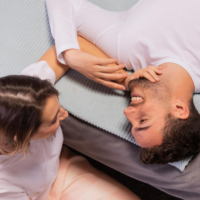Do you feel free to express your emotions, even the ones considered negative?
We know the importance of physical safety. But what about emotional safety? Emotional safety has evolutionary roots and is tied to physical survival. Research shows that physical and emotional safety cannot be separated.
Understanding Emotional Safety
If we have emotional safety, then we feel accepted, understood, and valued for who we are, without fear of judgment, criticism, or rejection. Emotional safety is the feeling of security that allows you to be your true, authentic self. A significant amount of trust needs to be established in a relationship for there to be emotional safety.
Benefits of Emotional Safety
When we feel emotionally safe, we are more likely to build deep, meaningful connections centered on trust. This type of security can improve communication skills. Emotional safety enables us to share thoughts and feelings openly, honestly, and effectively. This, in turn, improves mental health by reducing stress, anxiety, and feelings of isolation. In addition, emotional safety fosters personal growth by encouraging us to take risks and try new things.
Key Components of Emotional Safety in a Relationship
Trust
Trust helps your partner feel secure with you and provides the key to a deeper connection. Trust means there’s faith in the other person. Lack of trust is one of the top reasons why relationships fail, according to a 2019 study. Without trust, you spend a lot of time worrying about your partners’ actions and the viability of your relationship.
Non-Judgment
You give your partner the benefit of the doubt and avoid judging their words or behavior. You avoid ascribing bad intentions to their actions.
Active Listening
This goes beyond hearing. Active listening means that when your partner is talking, you are fully present. You make eye contact with them. You ask questions to try to understand their perspective.
Respect for Boundaries
Boundaries are the guidelines for what is acceptable behavior to us as individuals. Healthy boundaries enhance autonomy and a sense of self, while also fostering greater understanding and closeness with your partner. Respecting boundaries means acknowledging and honoring your partner’s limits and needs.
Support During Conflict
Even in times of stress when emotions run high, both people show up for each other. During arguments, respect still remains. No one runs away or avoids tough conversations.
Empathy
Empathy means showing unwavering compassion and understanding towards your partner’s feelings and experiences.
What Happens When a Relationship Lacks Emotional Safety
Do you feel like you walk on eggshells with your partner? Are you unable to say what you want to say for fear of how your partner will react? When you do come to them with hard truths, do you feel judged or unsupported? If you answered “yes” to any of these questions, emotional safety might be missing from your relationship.
Without emotional safety, a harmful cycle can develop.
Here’s how it can look:
Trust
Alyssa tells her partner she’s feeling stressed and overwhelmed because of her work and taking care of the kids.
Her partner responds defensively, listing off all the things he does to help.
Alyssa feels less comfortable opening up in the future.
Building Emotional Safety in Relationships
Really Listen
Practice active listening by listening with your whole body. Be aware of your body language and non verbal cues. What kind of message are you sending, without words?
Attend Therapy
Therapy, whether couple or individual, is an effective way to improve emotional safety. One way couples therapy can help is by shifting the focus to how you deal with conflict rather than the conflict itself. Individual therapy provides a safe, judgement-free environment for you to explore and express your emotions.
Show Appreciation
Make sure to express gratitude when your partner is vulnerable with you. Let them know you appreciate how they’ve given you what you need to feel emotionally safe. Thank them when they listen without judgment, offer validation. Offer specific compliments like, “Thank you for making me feel safe to express myself”.
You don’t have to wait for something to happen to give a compliment or express you gratitude. Little acts of love are little everyday things that remind your partner how much you care. Small things can go the distance. Make them coffee. Help with a chore. Write them a note. Send them an “I love you” in the middle of the day.
Offer Validation
Validation is a way to show your partner that you acknowledge and respect their feelings, even if you don’t agree with them. This helps build trust. To emotionally validate your partner, you offer support free of judgment and without trying to change or fix things. “To validate your partner, you can use statements like “I see how that must be difficult,” or “I can understand why that would make you feel upset.”
Respect and Honor Boundaries
Don’t pressure your partner to open up faster than they’re ready. Honor their need for space and independence. Let your partner know what you are and are not comfortable with.
Common Challenges to Emotional Safety
Building and maintaining emotional safety can be challenging due to various factors, including past experiences, communication styles, and personal insecurities. Past relationships or traumas can affect one’s ability to feel safe. Trauma survivors may unconsciously create emotional distance as a protective mechanism. Differences in how information is expressed and received can lead to misunderstandings. Personal insecurities, such as feelings of inadequacy or a fear of rejection, can also prevent openness. Implicit or explicit biases can create an environment where certain individuals feel unsafe to express themselves.
It is essential to be patient and understanding when it comes to establishing emotional safety. We also must recongnize that emotional safety is a continuous process. Each individual brings their unique history and experiences to a relationship, which can influence their perception of safety and trust.

 Call Us Now
Call Us Now



